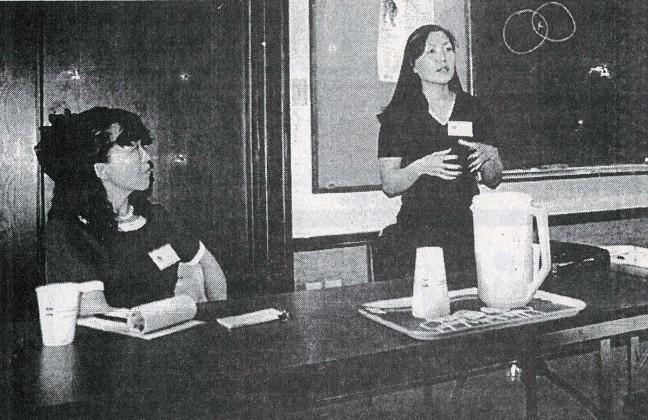As part of an effort to bring a Korean Studies program to UW-Madison, the newly formed Tiger 2000 Committee for Korean Studies held a conference titled “Tearing Down Boundaries” Friday.
The event, part of Asian American Heritage Month, explored the history and culture of Korea and Korean Americans.
Despite Korea’s status as a prominent country in East Asia, UW currently has no Korean Studies Department and offers only one class per semester in Korean language instruction, organizers said.
Sophomore Meegan Voskuil, conference director for “Crossing Boundaries,” said tremendous support exists from UW students for courses in Korean Studies.
“People on this campus really want Korean-American Studies, and I think it is vital to our education,” she said. “It should be a given that we have Korean-American Studies on a campus of this size.”
Speakers at the conference included writer/director Jennifer Arndt, a Korean-American adoptee who spoke about her own experience and issues of international adoption.
Voskuil said the problems of Korean adoptees have been invisible in this country, despite the larger issues involved.
“Adoption is so personal and everyone deals with it differently,” Voskuil said. “Even though [adoptees] are physiologically Korean, we were raised in a culture that is basically white.”
Voskuil said many growing up in her position suffer from identity problems.
“Mostly, when people hit college, everyone is trying to find out who they are and what they want to do. For adoptees, it’s so much more,” Voskuil said. “You constantly ask yourself, am I Korean, Korean-American, a mixture, a different group, where do I fit in?”
Peggy Choy, adviser to Tiger 2000, said the group hopes to launch Korean Studies at UW and introduce improved teaching methods.
“Alongside looking at a new area of study, we’re looking at ways of conceptualizing the study,” she said. “Hopefully, we will have a new vision of education.”
Choy described Korea as a key country of East Asia with a strong cultural identity.
“Korea is a small country with a colonial history, but often dominated by China and Japan,” Choy said. “It is being looked to as an example of economic recovery in Asia.”
According to Choy, many Midwestern universities ignore Korean studies.
“It seems that it is time to pay attention to the history, culture and issues such as adoption that are staring us in the face by the changing demographics of the Midwest,” she said. “We can’t set up good relations from a standpoint of ignorance.”
Junior Akiko Ikeno, public relations coordinator of Asian American Month, said the committee hopes to receive greater support from the UW administration in order to see Korean and Korean-American Studies developed.
“We know that the faculty and staff will be here longer than we will, so we want them to keep the fire going,” Ikeno said. “The big focus is on students — this university is for students, and if it’s not offering what students want, it’s not doing what it’s supposed to be doing.”


